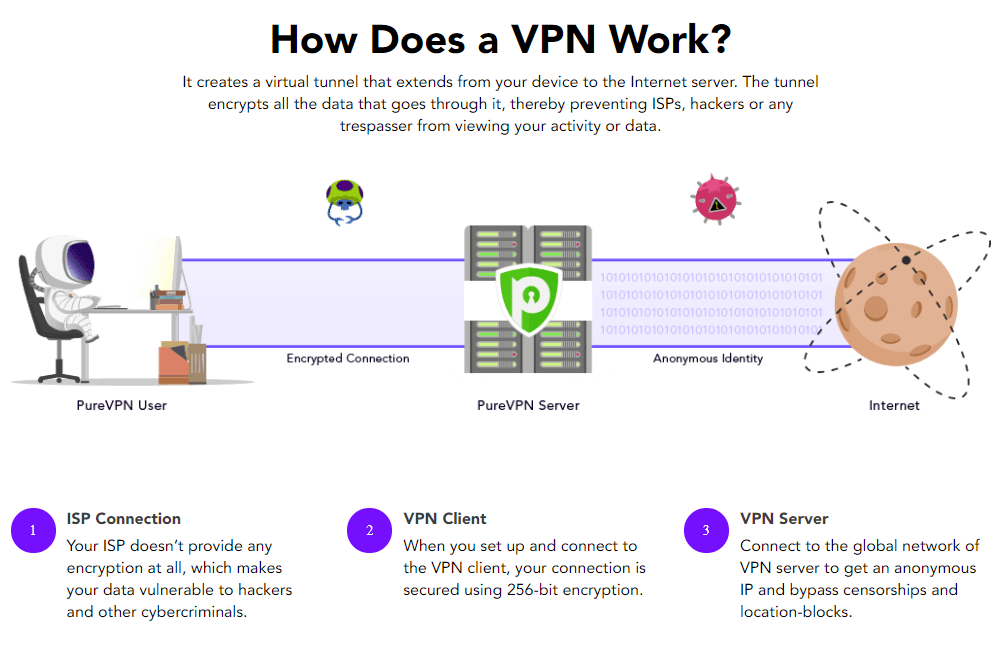Choosing The Right VPN Protocol For Secure Network Connectivity
Have you ever heard of VPN protocols? If you're not familiar with them, don't worry! In this post, we'll provide you with all the information you need to know about VPN protocols and which protocol you should use.

What is a VPN?
A Virtual Private Network (VPN) is a secure, encrypted tunnel between your device and a remote server. VPNs protect your online privacy and security by routing your internet traffic through an encrypted tunnel. Thus, no one can see what you are doing online or steal your data.
VPNs allow you to bypass geo-restrictions, protect your online privacy and access blocked websites and apps. They are also useful when you're on public Wi-Fi, as they encrypt your internet traffic and make it difficult for hackers to steal your data.
What are VPN Protocols?
A VPN protocol is a set of rules and procedures used by a VPN to establish a secure connection between your device and a remote server. VPN protocols determine how your data is encrypted, how your device establishes and maintains a connection with the VPN server, and how your traffic is routed through the VPN tunnel.
Below are some of the most common VPN protocols:
1. OpenVPN
OpenVPN is an open-source VPN protocol that uses SSL/TLS encryption. It is considered one of the most secure VPN protocols available, as it supports 256-bit encryption and can bypass firewalls and other online censorship tools.
OpenVPN is compatible with most operating systems and devices and is easy to set up. It also offers excellent speed and performance, making it a popular choice among VPN users worldwide.
2. L2TP/IPSec
Layer 2 Tunnel Protocol (L2TP) is a VPN protocol that doesn't provide any encryption on its own. To ensure security, L2TP is usually combined with Internet Protocol Security (IPSec), which provides encryption and authentication.
L2TP/IPSec is a secure VPN protocol that is widely supported by most operating systems and devices. However, it is not as fast as other VPN protocols, and it can be blocked by firewalls and other online censorship tools.
3. PPTP
Point-to-Point Tunneling Protocol (PPTP) is an older VPN protocol that uses a less secure encryption method than other VPN protocols. It is still widely used, but it is not recommended if security is a top priority.
PPTP provides excellent speed and performance and is supported by most operating systems and devices. However, it can be blocked by firewalls and other online censorship tools, making it less reliable than other VPN protocols.
4. SSTP
Secure Socket Tunneling Protocol (SSTP) is a VPN protocol that uses SSL/TLS encryption. It is a secure VPN protocol that is compatible with most operating systems and devices.
SSTP is not as popular as other VPN protocols, but it is a good choice if you're looking for a secure and easy-to-use VPN protocol that is not likely to be blocked by firewalls and other online censorship tools.
Which VPN Protocol Should You Use?
The VPN protocol you should use depends on your needs and preferences. Here are some factors to consider when choosing a VPN protocol:
1. Security
If security is your top priority, then OpenVPN is the best VPN protocol to use. It offers the highest level of security and is extremely difficult to crack. L2TP/IPSec and SSTP are also secure VPN protocols, but they are not as secure as OpenVPN.
2. Speed and Performance
If speed and performance are your top priorities, then PPTP is the best VPN protocol to use. It provides excellent speed and performance, but it is not the most secure VPN protocol. OpenVPN and L2TP/IPSec are also fast VPN protocols but can be slower than PPTP.
3. Compatibility
The VPN protocol you choose should be compatible with your operating system and device. OpenVPN is compatible with most operating systems and devices, making it an excellent choice for most users. L2TP/IPSec is also widely supported, but it can be more challenging to set up than other VPN protocols.
4. Accessibility
If you need to bypass geo-restrictions and access censored websites and apps, then OpenVPN and SSTP are your best options. Both of these VPN protocols can bypass firewalls and other online censorship tools, making them accessible from anywhere in the world.
Conclusion
VPN protocols are essential components of any VPN service. They determine how your data is encrypted, how your device establishes and maintains a connection with the VPN server, and how your traffic is routed through the VPN tunnel.
The VPN protocol you choose should depend on your needs and preferences. If security is your top priority, then OpenVPN is the best VPN protocol to use. If speed and performance are your top priorities, then PPTP is the best VPN protocol to use. However, if you want a VPN protocol that is easy to use and compatible with most operating systems and devices, then OpenVPN is the best choice.
We hope this post has provided you with all the information you need to know about VPN protocols. If you have any questions or comments, please feel free to leave them in the comments section below!




Post a Comment for "Choosing The Right VPN Protocol For Secure Network Connectivity"